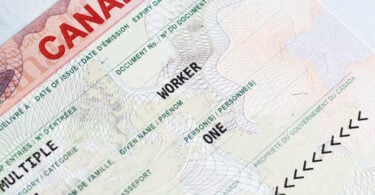With its rich academic heritage, Canada hosts more than 1,500 educational establishments that welcome international students. This comprehensive guide will walk you through the steps and benefits of studying in Canada and potentially staying on to work after your studies.
Table of Contents
Choosing the Right Institution
Designated Learning Institutions (DLIs), endorsed by Immigration Refugees and Citizenship Canada (IRCC), are the key destinations for aspiring international students. Their number is rising, so it’s crucial to verify that your chosen institution is recognized by IRCC by visiting the official Canadian government website. The provinces of Quebec and Ontario, the most populous, have roughly 1,000 DLIs combined. This means prospective students have a vast array of academic programs.
Quality of Education
The Canadian education system emphasizes equity, ensuring every student receives a top-notch education irrespective of their institution. With over 150 community colleges focusing on applied exercises, students are prepped to seamlessly integrate into the job market. Such colleges provide practical know-how, equipping students to secure jobs in their respective fields.
If you enjoy this article, don't miss out on the valuable insights and information available in our other related posts:
Why Study in Canada?
- Diverse Culture: Canada’s multicultural fabric offers a welcoming environment for students.
- Safety: The country is renowned for its safety and security standards.
- Academic Excellence: Canadian schools are globally recognized for their high-quality education.
- Affordability: Studying in Canada is cost-effective compared to other popular international student destinations. The Canadian dollar is relatively weaker when juxtaposed with significant currencies like the EUR, USD, and GBP, making it a favorable option.
- Employment Opportunities: Canada allows international students to work during and after their studies and potentially transition to permanent residence.
- Global Appeal: Canada welcomes students and immigrants from over 200 countries annually.
Steps to Embark on Your Canadian Academic Journey
- Identify Your Program: Research thoroughly to find the right educational program in Canada.
- Institution Application: Once zeroed in on your program, apply to the desired Canadian DLI.
- Acquire a Study Permit: After receiving your acceptance letter, collaborate with an immigration firm to apply for a study permit from the Canadian government. This permit is a prerequisite for most international students.
Essential Documentation
- Acceptance Letter: This confirms your enrollment in the chosen program.
- Proof of Funds: Documentation to showcase your financial capability to cover tuition fees and living expenses for your initial year in Canada.
- Identity Documents: These can include birth certificates, passports, or marriage certificates.
The Canadian Study Permit Explained
- Determine Your Eligibility: Ascertain if you meet all the requirements like having a DLI acceptance letter, financial proof, and other supporting documents.
- Prepare Your Application: After confirming eligibility, gather all necessary documents. Engaging an experienced immigration representative can be beneficial.
- Submit Your Application: You can either:
-
- Apply online through the Immigration, Refugees, and Citizenship in Canada (IRCC) website.
- Submit a physical application via the Visa Application Center (VAC) pertinent to your country.
- Arrival in Canada: If approved, your study permit is issued upon arrival at the Canadian Port of Entry.
Understanding the Cost of Studying in Canada
Canada offers quality education at a fraction of the cost compared to countries like the US, UK, and Australia. For instance, the average tuition fee for an undergraduate international student in Canada was CAD 27,159 for the 2018/19 academic year. Coupled with affordable living expenses, Canada is an economical choice for many.
Accommodation, Food, and Transportation
The cost varies depending on the province or city. For instance:
- Toronto: Monthly transportation costs $122.45, and a basic lunch in the business district averages $17.00.
- Montreal: Transportation costs $80 a month, and a business district lunch costs approximately $16.00.
- Saint John’s: Transportation is around $78.00 monthly, with lunch costing about $18.00 in the business areas.
Health Insurance in Canada
All international students are required to have health insurance. While some provinces offer health coverage, others necessitate purchasing private health insurance.
How to Study in Canada for Free?
Multiple scholarship opportunities are available for international students based on their academic field and country of origin.
Remember, the ultimate key to successful admission is thorough research and preparation. Canada awaits you with open arms!





